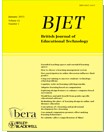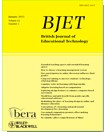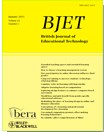-
基础教育
- 教材:
-
- 全部
- 中国地图出版社
- 人教版
- 人教版2012
- 人教版2013版
- 人教版PEP(3年级)
- 人教版义务
- 人教版新课标
- 人教版新起点(1年级)
- 人教版(Go for it)
- 人教版(三年级起点)
- 人教版(三年级起点)2012-2013
- 人教版(版本不明)
- 人教社2016年新编教材
- 冀教版
- 冀教版(三年级起点)
- 北京版
- 北师大版
- 北师大版(2016)
- 北师大版(1年级)
- 北师大版(3年级)
- 北师版2013
- 华东师大版
- 外研社版
- 外研社(三年级起点)
- 外研社(广西专用)
- 广州新版(三年级起点)
- 广州版
- 开心学英语
- 教育科学(3年级起点)
- 教育科学(广州版)
- 新华东师大版
- 新起点英语
- 朗文英语
- 河北版
- 湘少版(3年级起点)
- 牛津上海版
- 牛津上海版(深圳新版)
- 牛津英语
- 粤教版
- 苏教版
- 语文S版
- 语文版
- 首师大版
- 香港现代版
- 齐齐学英语
- 高等教育
- 职业教育
-
119-134 普通类
Utilizing the same technologies pioneered by the embedded journalists in Iraq, the University of Central Florida (UCF) teamed up with TracStar, Inc to create a small-scale, satellite-based expedition transmission package to accompany a university film and digital media professor into parts of Utah and the Moab Desert that had a historical significance to American Western Films. The expedition took the group to many locations where scenes from John Wayne and John Ford movies were filmed. Students along on the trip camped out and suffered similar tough conditions as did the original film crews, experienced the wilderness, and participated in lectures and interviews with locals, who supported the films and acted as extras and stunt persons. The project brought a live experience back to the university campus in which students personally interact firsthand with the people, places, things in as real a manner as what the remote travelers encountered. This article presents details about the experiences of the first implementation of the live broadcasts from the remote desert and the reactions of focus groups to the experience. One group watched archived broadcast, convinced that they were live. Their impressions and reactions were recorded and analyzed and compared to those who were part of a control group. Conclusions and recommendations for future trips are introduced.
-
The interplay between learning and the use of ICT 普通类
Assessing the educational values of digital games
-
Foundations of communities of practice 普通类
Assessing the educational values of digital games
-
A context-aware ubiquitous learning environment 普通类
Assessing the educational values of digital games
-
92-118 普通类
With the proliferation of mobile computing technology, mobile learning (m-learning) will play a vital role in the rapidly growing electronic learning market. M-learning is the delivery of learning to students anytime and anywhere through the use of wireless Internet and mobile devices. However, acceptance of m-learning by individuals is critical to the successful implementation of m-learning systems. Thus, there is a need to research the factors that affect user intention to use m-learning. Based on the unified theory of acceptance and use of technology (UTAUT), which integrates elements across eight models of information technology use, this study was to investigate the determinants of m-learning acceptance and to discover if there exist either age or gender differences in the acceptance of m-learning, or both. Data collected from 330 respondents in Taiwan were tested against the research model using the structural equation modelling approach. The results indicate that performance expectancy, effort expectancy, social influence, perceived playfulness, and self-management of learning were all significant determinants of behavioural intention to use m-learning. We also found that age differences moderate the effects of effort expectancy and social influence on m-learning use intention, and that gender differences moderate the effects of social influence and self-management of learning on m-learning use intention. These findings provide several important implications for m-learning acceptance, in terms of both research and practice.
-
assessment in an online learning environment 普通类
This article describes a blueprint for an online learning environment that is based on prominent instructional design and assessment theories for supporting learning.
-
The role of electronic pocket dictionaries 普通类
Assessing the educational values of digital games
-
Self-directed learning readiness 普通类
Assessing the educational values of digital games
-
Integrating technology in the classroom 普通类
Assessing the educational values of digital games
-
78-91 普通类
There is an increase use of wireless technologies in education all over the world. In fact, wireless technologies such as laptop computers, palmtop computers and mobile phones are revolutionising education and transforming the traditional classroom-based learning and teaching into anytime and anywhere education. This paper investigates the use of wireless technologies in education with particular reference to the potential of learning new technical English language words using Short Message Service (SMS) text messaging. The system, developed by the authors, called mobile learning tool (MOLT), has been tested with 45 1st-year undergraduate students. The knowledge of students before and after the experiment has been measured. Our results show that students enjoyed and learned new words with the help of their mobile phones. We believe that using the MOLT system as an educational tool will contribute to the success of students.




